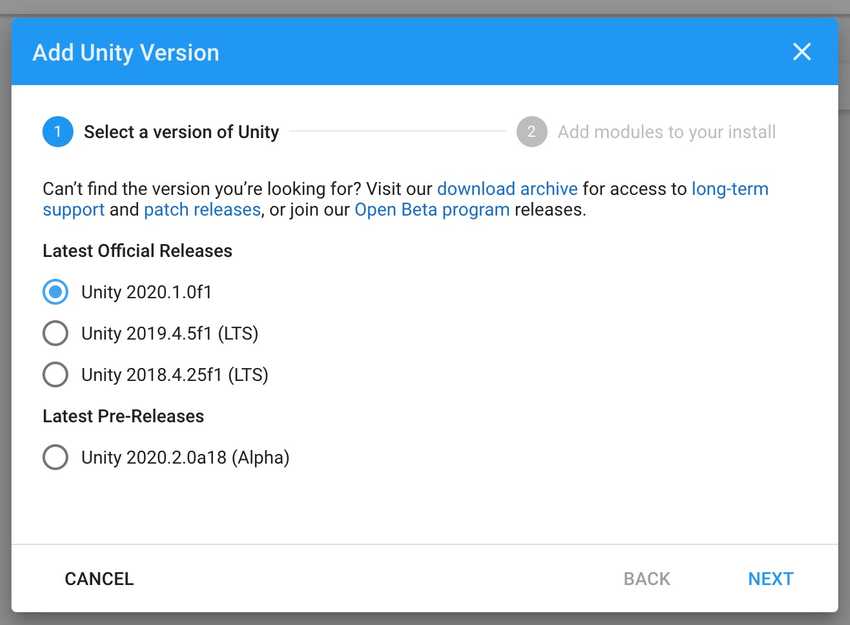The following might seem obvious to many, but not for newcomers to product creation, whether it’s in the design, development, or any other field.
Don’t use beta versions or pre-releases of any software (framework, library, any tool) on serious projects, especially not real-life client projects!
The latest version does not mean the best version.
I recently started learning Unity, a cross-platform game development engine. I’m running on Unity 19.4.5f1, which is the latest LTS release for Unity. I’ll get back to the LTS part in a moment.

As you can see in the overview above, Unity 2020 is just around the corner, and it has 1000s of users waiting with anticipation, because Unity 2020 is going to be a major release, with lots of new features. As of the time of this writing, you can play around with two different versions of Unity 2020:
- Unity 2020.1.0f1
- Unity 2020.2.0a18 (Alpha)
Notice that none of the Unity 2020 versions have LTS included in the name, and that is the important part, as it stands for Long-Term-Support.
If you build a game with an LTS version of Unity, you can expect that this will be the most stable and most bug-free experience you’ll have using Unity. This is usually what you want, whether you’re a beginner or an experienced user.
When a new LTS version of a software product is released, upgrading from the previous LTS version is usually a breeze. That’s because compatibility between LTS releases is a top priority in software companies — because most end-users use LTS for their real-life projects.
Any non-LTS software version (of any software, not just Unity) does not come with any guarantee of support. Non-LTS releases are experimental pre-releases of the next big version of Unity. Using these pre-releases in production could be unstable and cause unsolvable problems down the road.
If you use a non-LTS version of any software product, you’re essentially guinea pig. There’s nothing wrong with this as long as you know what you sign up for. Big software companies need beta/pre-release testers to help to solve as many bugs as possible before they release the first LTS version on the market.
In summary:
Betas/pre-releases of any software product are meant for testing, and should primarily be used by experienced users, or for users that want a taste for what’s coming. Don’t use them for real-life projects!